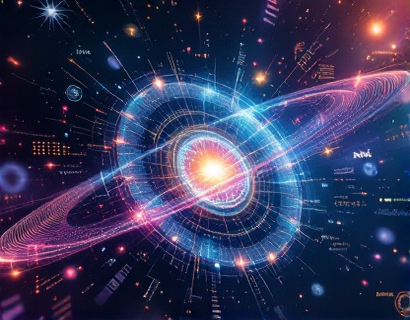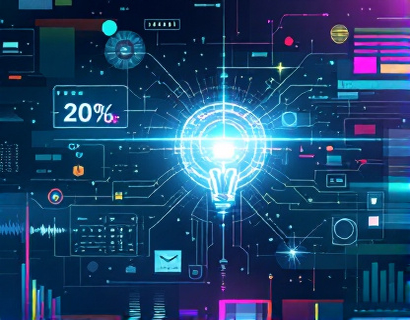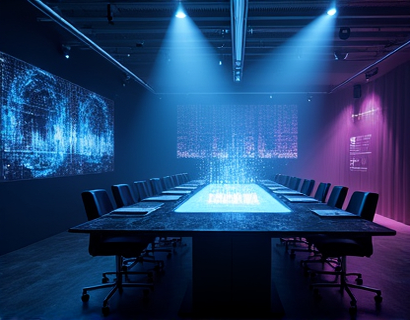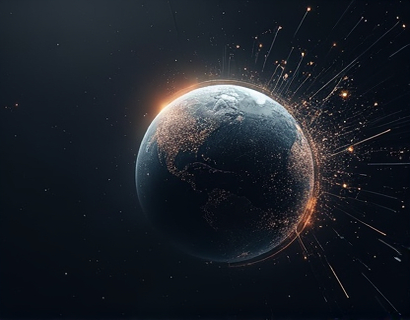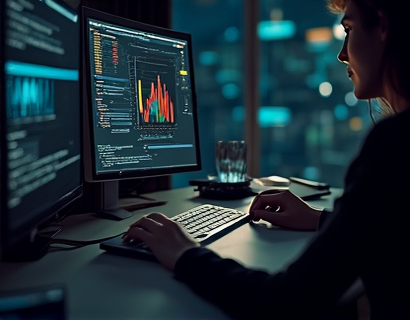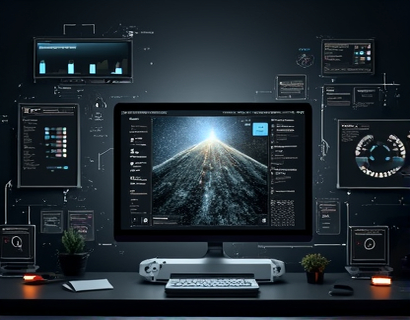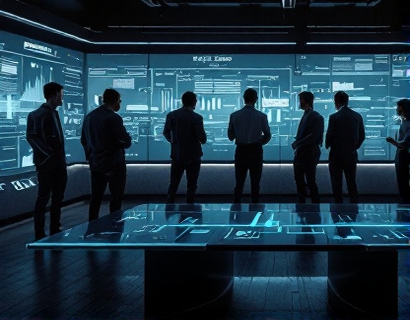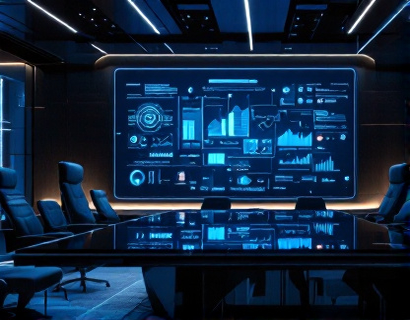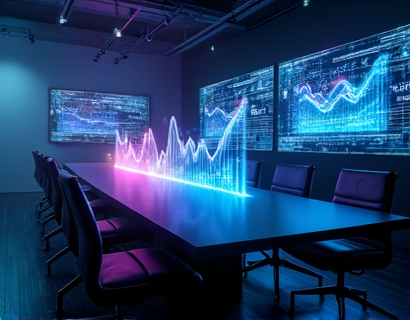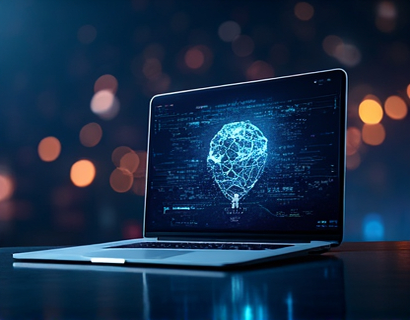Unlocking the World of Unique Digital Assets: A Premier Guide for Enthusiasts and Collectors
In the rapidly evolving landscape of technology and finance, digital assets have emerged as a significant area of interest for collectors and enthusiasts alike. This premier guide aims to unlock the full spectrum of digital assets, providing a comprehensive resource for those looking to explore, connect, and engage with a diverse array of unique and valuable resources. Whether you are a seasoned collector or a newcomer to the world of digital assets, this guide will help you navigate the complexities and opportunities that lie ahead.
Understanding Digital Assets
Digital assets refer to any form of content or data that is stored in a digital format and has value. This can include cryptocurrencies, non-fungible tokens (NFTs), digital art, virtual real estate, and more. The rise of blockchain technology has revolutionized the way we perceive ownership and value in the digital realm, making it essential for enthusiasts and collectors to understand the various types of digital assets available.
Types of Digital Assets
Cryptocurrencies
Cryptocurrencies are digital currencies that use cryptography for security and operate on decentralized networks. Bitcoin, Ethereum, and Litecoin are some of the most well-known cryptocurrencies. They can be used for transactions, investments, and as a store of value.
Non-Fungible Tokens (NFTs)
NFTs are unique digital tokens that represent ownership of a specific item or piece of content, such as digital art, music, or collectibles. Unlike cryptocurrencies, which are fungible and can be exchanged for one another, NFTs are one-of-a-kind and cannot be replicated.
Digital Art
Digital art encompasses a wide range of creative works created using digital technology. Artists can sell their digital art as NFTs, allowing collectors to own a verified piece of their work. This has opened up new avenues for artists and collectors alike.
Virtual Real Estate
Virtual real estate refers to parcels of land or property within virtual worlds or metaverses. Users can buy, sell, and develop virtual real estate, creating unique experiences and opportunities for investment.
Domain Names
Domain names are digital assets that represent a specific web address. Premium domain names can hold significant value, making them a popular investment choice for collectors and entrepreneurs.
The Importance of Digital Assets for Collectors
For collectors, digital assets offer a new frontier of opportunities. The ability to own, trade, and showcase unique digital items has transformed the traditional collecting landscape. Here are some reasons why digital assets are important for collectors:
Accessibility
Digital assets can be accessed from anywhere in the world, making it easier for collectors to find and acquire items that interest them. This global accessibility has expanded the market for digital collectibles.
Verification of Ownership
Blockchain technology provides a secure and transparent way to verify ownership of digital assets. This ensures that collectors can confidently buy and sell items without the risk of fraud.
Diverse Investment Opportunities
The digital asset market is constantly evolving, offering collectors a wide range of investment opportunities. From cryptocurrencies to NFTs, there are numerous ways to diversify a collection and potentially increase its value over time.
Community Engagement
Many digital asset platforms foster communities of collectors and enthusiasts. This allows individuals to connect, share knowledge, and collaborate on projects, enhancing the overall collecting experience.
How to Get Started with Digital Assets
Getting started with digital assets can seem daunting, but with the right approach, anyone can begin their journey into this exciting world. Here are some steps to help you get started:
1. Educate Yourself
Before diving into the world of digital assets, it is crucial to educate yourself about the different types of assets available, the technology behind them, and the market dynamics. There are numerous online resources, courses, and communities dedicated to helping newcomers understand the landscape.
2. Choose a Digital Wallet
A digital wallet is essential for storing and managing your digital assets. There are various types of wallets available, including hardware wallets, software wallets, and online wallets. Research the options and choose one that best suits your needs in terms of security and usability.
3. Start Small
As with any investment, it is wise to start small when entering the digital asset market. Consider purchasing a small amount of cryptocurrency or a single NFT to familiarize yourself with the buying and selling process before making larger investments.
4. Join Online Communities
Engaging with online communities can provide valuable insights and support as you navigate the world of digital assets. Platforms like Discord, Reddit, and specialized forums offer spaces for collectors and enthusiasts to share experiences, ask questions, and learn from one another.
5. Stay Informed
The digital asset landscape is constantly changing, with new developments and trends emerging regularly. Stay informed by following news sources, blogs, and social media accounts dedicated to digital assets to keep up with the latest information.
Exploring Unique Digital Assets
Now that you have a foundational understanding of digital assets, it’s time to explore the unique offerings available in this space. Here are some categories of unique digital assets that collectors may find intriguing:
1. Digital Collectibles
Digital collectibles are items that can be bought, sold, and traded in digital formats. These can include virtual trading cards, in-game items, and other unique digital goods. Platforms like NBA Top Shot and Sorare have popularized digital collectibles, allowing fans to own a piece of their favorite sports moments.
2. Virtual Goods
Virtual goods are items that exist within online games or virtual worlds. These can range from character skins and weapons to virtual pets and accessories. Collectors often seek rare virtual goods to enhance their gaming experience or showcase their collections.
3. Digital Music and Media
Musicians and content creators are increasingly using digital assets to distribute their work. NFTs can be used to sell music tracks, albums, and exclusive content, allowing fans to support their favorite artists while owning a unique piece of their work.
4. Digital Fashion
Digital fashion is an emerging trend where designers create virtual clothing and accessories for avatars in virtual worlds. Collectors can purchase and showcase these digital fashion items, blurring the lines between fashion and technology.
5. Art and Photography
Digital art and photography have gained significant traction in the NFT space. Artists can tokenize their work, allowing collectors to purchase and own verified pieces of digital art. This has created new opportunities for artists to monetize their creations and for collectors to invest in unique artworks.
Connecting with Other CollectorsBuilding connections with other collectors can enhance your experience in the digital asset space. Here are some ways to connect with fellow enthusiasts:
1. Attend Virtual Events
Many platforms host virtual events, conferences, and exhibitions focused on digital assets. Attending these events can provide opportunities to network, learn from industry experts, and discover new trends.
2. Join Social Media Groups
Social media platforms like Facebook, Twitter, and Instagram have groups and communities dedicated to digital assets. Joining these groups can help you connect with like-minded individuals and stay updated on the latest news and trends.
3. Participate in Online Forums
Online forums and discussion boards are excellent places to engage with other collectors. Platforms like Reddit have dedicated subreddits for digital assets, where users can share insights, ask questions, and discuss their collections.
4. Collaborate on Projects
Collaborating with other collectors on projects can lead to exciting opportunities and new experiences. Whether it’s creating a digital art collection or organizing a virtual exhibition, working together can enhance your collecting journey.
Challenges in the Digital Asset Space
While the world of digital assets offers numerous opportunities, it is not without its challenges. Here are some common challenges that collectors may face:
1. Market Volatility
The digital asset market is known for its volatility, with prices fluctuating rapidly. This can make it challenging for collectors to determine the right time to buy or sell assets.
2. Security Risks
As with any online activity, security is a significant concern in the digital asset space. Collectors must take precautions to protect their wallets and assets from hacking and fraud.
3. Regulatory Uncertainty
The regulatory landscape for digital assets is still evolving, with different countries implementing varying regulations. This uncertainty can impact the market and the way collectors engage with digital assets.
4. Lack of Understanding
Many individuals still lack a comprehensive understanding of digital assets, which can lead to confusion and hesitation when it comes to investing or collecting. Education and awareness are crucial for overcoming this challenge.
The Future of Digital Assets
The future of digital assets is bright, with continued innovation and growth expected in the coming years. As technology advances and more individuals become aware of the potential of digital assets, the market is likely to expand further. Here are some trends to watch for:
1. Increased Adoption
As more people become familiar with digital assets, adoption is expected to increase. This could lead to a broader acceptance of cryptocurrencies and NFTs in everyday transactions and interactions.
2. Integration with Traditional Finance
Digital assets are increasingly being integrated into traditional financial systems. This could lead to new investment opportunities and financial products that incorporate digital assets.
3. Enhanced User Experience
As the digital asset market matures, platforms are likely to focus on improving user experience. This could include more intuitive interfaces, better security measures, and enhanced educational resources for collectors.
4. Environmental Considerations
As concerns about the environmental impact of blockchain technology grow, there may be a shift towards more sustainable practices in the digital asset space. This could include the development of eco-friendly cryptocurrencies and NFTs.
Conclusion
Unlocking the world of unique digital assets offers a wealth of opportunities for collectors and enthusiasts. By understanding the various types of digital assets, connecting with other collectors, and staying informed about market trends, individuals can navigate this exciting landscape with confidence. As the digital asset market continues to evolve, embracing the possibilities it presents will be key to unlocking its full potential.






